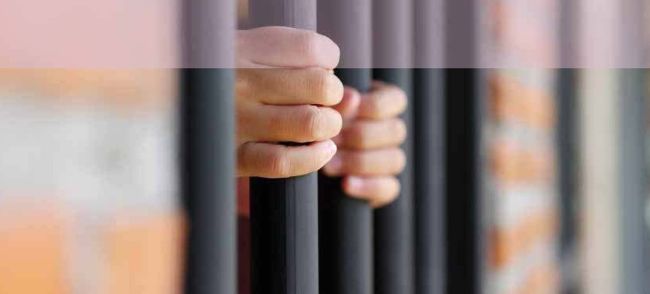In the final p art of his series, the Very Rev Dr Andrew McLellan considers an unlikely escape from prison.

Photo: iStock
THE third prison escape story in the Book of Acts is the most unlikely.
In Acts 16: 19-37 Paul and Silas are imprisoned in Philippi. They have been imprisoned ostensibly for “disturbing our city: these men are Jews, and they are advocating customs that are not lawful for us as Romans to adopt”.
Then as now, anti-Semitism can always be confident of an audience.
But the story behind the charge is that they have robbed greedy merchants of their livelihood by curing a slave-girl whose mental illness brought profit to her owners.
On their first night in jail a great earthquake tore open the prison doors and broke the prisoners’ chains: and Paul and Silas stayed just where they were and waited for the jailer to find them. Compared to the other Acts stories of prison escape it is an unlikely outcome.
The unlikely scene begins in a familiar way.
Every Scottish prison today is familiar with the sound that filled the prison of Paul and Silas: the sound of hymn singing. Every Scottish prison has a chaplain or chaplains (both Catholic and Protestant, and sometimes also Muslim); and every chaplain is responsible for providing prisoners with opportunities for worship.
Sometimes the numbers are low, but not always.
When I was inspecting prisons my experience was that prison chaplains are valued more highly by prisoners and staff than parish ministers usually are in the community.
I have been reading a book called Out of the Darkness. The author is Anthony Gielty; and the book tells his own story:
“The transformation of one of Scotland’s most violent prisoners”.
He describes the visit of a prison chaplain. It is at the point where he is in the darkest depth of his own life, and a the same time imprisoned in the worst place in the whole prison.
The chaplain held out his hand and looked at Anthony in a way that no-one else in the jail ever did – neither prisoner nor prison officer. He looked at him without any judgment in his eyes. “And in that moment”, I heard Anthony Gielty say later, “God remembered me”. It was just as if an earthquake had shaken the whole jail and shaken one man within it.
What makes this story the most unlikely of the three prison escape stories in Acts is not just the earthquake; nor even the dramatic resolve of the prisoners not to escape after all; but that, for a while at least, the attention of the story is turned away from Paul and Silas onto the jailer.
The story of his appeal to the prisoners (“what must I do to be saved”) and their response (“Believe in the Lord Jesus”) is a powerful story. There is no suggestion that he is a “God-fearer” or in any way sympathetic to the faith of Paul and Silas. The very opposite: he is the symbol of the implacable and cruel hostility of the Empire to the life and work of the church. And yet he is the one who is baptised.
The real miracle of this prison story is not that the doors of a prison are opened by an earthquake, but that the doors of this pagan jailer’s heart are opened by the gospel of God.
The Very Rev Dr Andrew McLellan served as HM Chief Inspector of Prisons from 2002 until 2009.